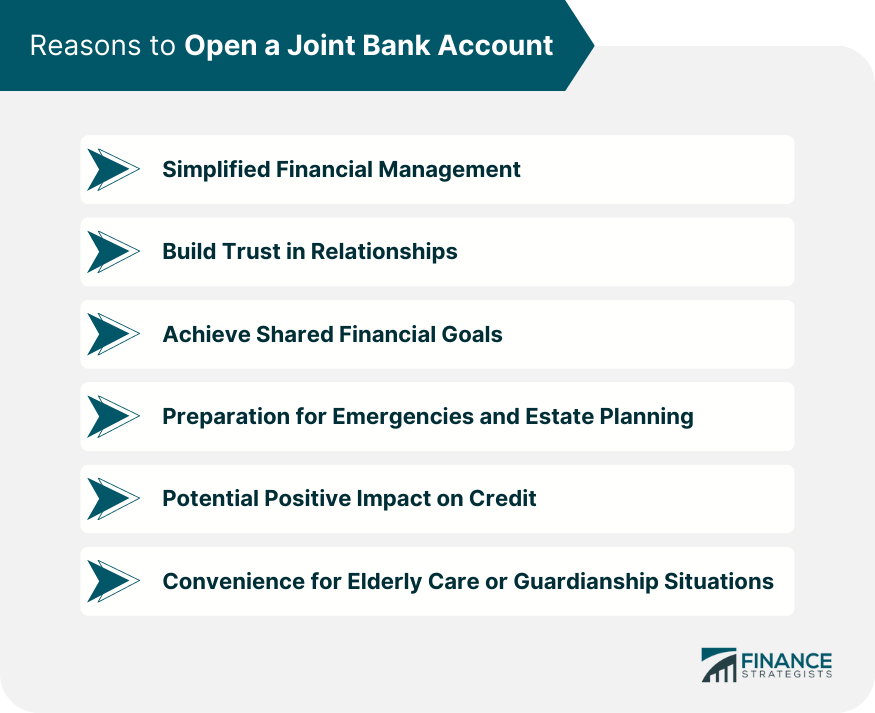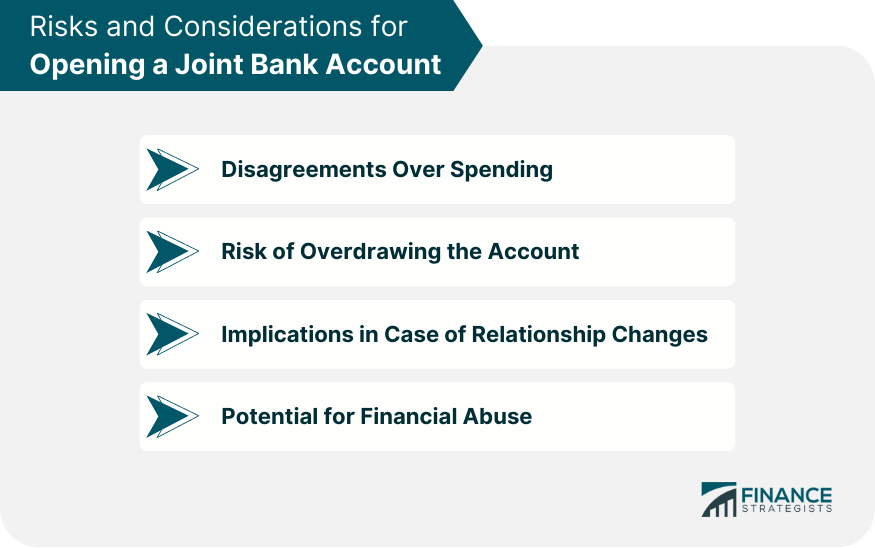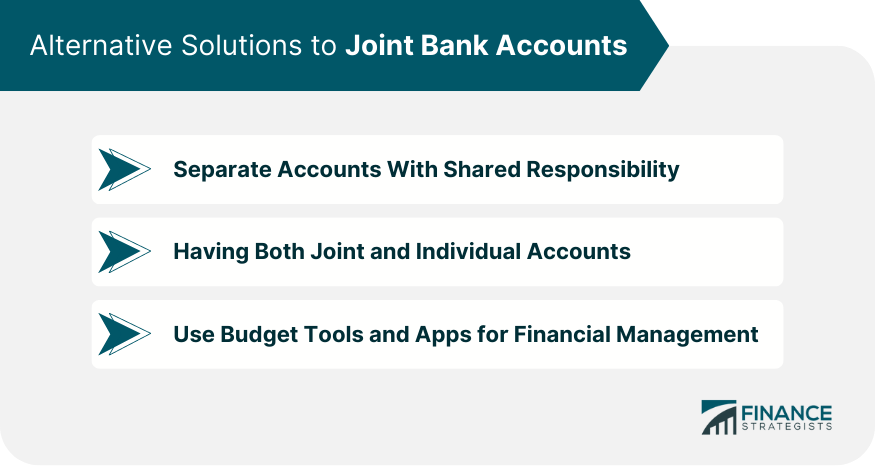The decision to open a joint bank account warrants careful consideration due to its practical advantages and potential complexities. Joint accounts offer shared responsibility and convenience for managing finances, making them appealing for couples, family members, and business partners. However, it is imperative to weigh these benefits against the drawbacks and explore alternative approaches to shared financial management. One of the primary motivations behind couples, business partners, or even close family members opting for joint bank accounts is the sheer convenience it offers. Imagine a world where household bills aren't the cause of a mini-family conference every month. With a joint account, both parties incomes feed into one source. This harmonization aids in the straightforward handling of recurring expenses such as mortgages, utilities, or that Netflix subscription both of you adore. Money matters can be tricky. Yet, they often serve as the foundation for trust in many relationships. When two individuals decide to merge their financial worlds, it signifies a deep sense of trust. Each party has to believe that the other won't misuse the funds, and this trust, once cemented, can further deepen the bond they share. Whether you're dreaming about a vacation in Santorini or putting down a deposit for your first home, shared dreams require shared resources. A joint bank account becomes the tool to manifest these dreams. It allows for transparent tracking of savings and expenditures aligned to joint aspirations. Life can be unpredictable. A joint bank account ensures that in the event of a sudden mishap or even a planned event like an estate transfer, funds are accessible without the usual bureaucratic maze. For many, this ease of access during challenging times is a solace. Financial institutions often perceive stability favorably. A joint account managed responsibly, indicates stable inflow and outflow, possibly strengthening the creditworthiness of the account holders. For caregivers or guardians, a joint account can be a beacon of convenience. It facilitates easy monitoring, ensuring the financial well-being of their wards without compromising on the dignity or independence of the elderly or dependent. Joint bank accounts require a mutual understanding of spending habits. However, every individual possesses unique financial perspectives and priorities. Merging finances brings the challenge of aligning these varied views. If both parties don't stay vigilant and communicate openly, disagreements may arise. These disputes can escalate, affecting the harmony of the relationship, especially when personal values and financial priorities clash. Joint bank accounts mean joint responsibilities. With both parties having access to the same funds, there's an increased possibility of frequent withdrawals. This heightened activity requires meticulous tracking to avoid inadvertently depleting the account. Overdrawing not only incurs additional fees but can derail pre-established financial goals, affecting the account holders' broader financial health. Life is unpredictable, and relationships evolve. In situations where co-holders part ways, either personally or professionally, the joint bank account becomes a focal point. Distributing joint assets equitably can be cumbersome and emotionally taxing. This process requires a clear understanding, open communication, and in some instances, legal interventions. Trust is foundational in joint financial arrangements. However, there's always a risk that one party might exploit this trust. There are instances where one partner could misuse or misappropriate funds, jeopardizing the other's financial security. This potential for financial manipulation and abuse necessitates regular monitoring and setting clear boundaries. Before leaping into the world of joint banking, it's imperative to evaluate the trust and communication dynamics of the relationship. Is there a history of open dialogue around finances? Are both parties comfortable discussing money matters without resentment? Like any other shared aspect of life, compatibility matters in financial habits too. If one is a saver and the other an impulsive spender, the joint account might see more conflicts than deposits. Understanding the legal implications of joint bank accounts, especially concerning liabilities and asset divisions, is essential. It's always recommended to consult with a financial advisor or legal expert before making a decision. Joint accounts require contingency plans. In case of any unexpected turn of events, from health crises to unexpected expenditures, having a plan ensures the financial ship remains steady. For those not entirely sold on joint accounts, maintaining separate accounts while sharing financial responsibilities might be a solution. This system maintains individual financial autonomy while promoting collective responsibility. A middle-ground approach is for both parties to maintain individual accounts for personal expenses while having a joint account for shared expenses. This balances autonomy with shared responsibility. With technology playing a pivotal role in modern finance, couples or partners can opt to use budgeting apps. These apps track, manage, and even predict expenditures, fostering financial understanding without necessarily merging accounts. Joint bank accounts undoubtedly offer a multitude of benefits, from streamlined financial management to fostering trust in relationships. They serve as a tangible tool to achieve shared aspirations and offer solace during unforeseen circumstances. However, like all financial instruments, they come with their set of challenges, especially when not anchored in mutual trust and open communication. The potential for disagreements and the ramifications of changing relationship dynamics can't be overlooked. It's vital for individuals to thoroughly assess their relationship's trust quotient, financial habits, and compatibility before merging their monetary worlds. While joint accounts can be the answer for many, alternative solutions like maintaining separate accounts with shared responsibilities or utilizing budget tools may better suit others. Ultimately, the decision to open a joint bank account should be rooted in mutual understanding, clear communication, and forward planning.Opening a Joint Bank Account: Overview
Reasons to Open a Joint Bank Account
Simplified Financial Management
Build Trust in Relationships
Achieve Shared Financial Goals
Preparation for Emergencies and Estate Planning
Potential Positive Impact on Credit
Convenience for Elderly Care or Guardianship Situations

Risks and Considerations for Opening a Joint Bank Account
Disagreements Over Spending
Risk of Overdrawing the Account
Implications in Case of Relationship Changes
Potential for Financial Abuse

Evaluating Your Personal Situation
Trust and Communication Levels in the Relationship
Financial Habits and Compatibility
Legal Considerations
Planning for the Unexpected
Alternative Solutions to Joint Bank Accounts
Separate Accounts With Shared Responsibility
Having Both Joint and Individual Accounts
Use Budget Tools and Apps for Financial Management

Final Thoughts
Should You Open a Joint Bank Account? FAQs
Joint bank accounts offer simplified financial management, trust-building within relationships, easier achievement of shared financial goals, preparation for emergencies, and potential positive impacts on creditworthiness.
Yes, disagreements over spending, the risk of overdrawing the account, and complications during relationship changes can potentially strain the relationship of the account holders.
No, it's not mandatory. Some people maintain separate accounts but share financial responsibilities. Others opt for a combination of both individual and joint accounts to balance personal autonomy with shared financial duties.
Open communication is key. Setting clear boundaries, budgeting together, regular financial check-ins, and using budgeting tools can help align financial goals and minimize disagreements.
No, joint accounts can be used by any two or more individuals, including business partners, close family members, or caregivers and their wards, depending on the mutual financial objectives and trust level.
True Tamplin is a published author, public speaker, CEO of UpDigital, and founder of Finance Strategists.
True is a Certified Educator in Personal Finance (CEPF®), author of The Handy Financial Ratios Guide, a member of the Society for Advancing Business Editing and Writing, contributes to his financial education site, Finance Strategists, and has spoken to various financial communities such as the CFA Institute, as well as university students like his Alma mater, Biola University, where he received a bachelor of science in business and data analytics.
To learn more about True, visit his personal website or view his author profiles on Amazon, Nasdaq and Forbes.













